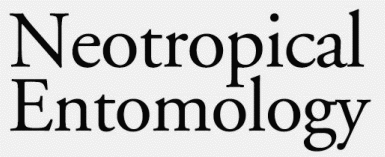The selectivity of the insecticides abamectin, lufenuron, fenbutatin oxide, tebufenozide, thiacloprid and deltamethrin used in citrus crops was evaluated for pupae and adults of Chrysoperla externa (Hagen). The experiments were conducted in the Entomology Department of the Universidade Federal de Lavras, MG, Brazil. The spraying was accomplished by means of Potter tower with volume of application of 1.5 ± 0.5 mg/cm². After spraying, the pupae were kept in test tubes in a climatic chamber and the adults in PVC cages in a room at 25 ± 2ºC, 70 ± 10% RH and 12h photophase. A completely randomized experimental design was used, with six products and ten replicates, each one composed of three pupae or a pair of adults. The action of lufenuron on males or females of C. externa was also evaluated under a completely randomized design with three treatments and ten replicates, each one composed of one pair. The insecticides were classified following the method established by the International Organization for Biological and Integrated Control of Noxious Animals and Plants (IOBC). All compounds were selective to the pupae (E < 30% of mortality). However, thiacloprid and deltamethrin were toxic to the adults (E > 99% of mortality), whereas fenbutatin oxide and tebufenozide were selective. Lufenuron reduced the survival rate of the egg when sprayed on the females. Thus, the results indicate that only fenbutatin oxide and tebufenozide could be used with C. externa in integrated pest management programs in citrus crops.
Pesticide; green lacewing; citrus orchard; toxicity





